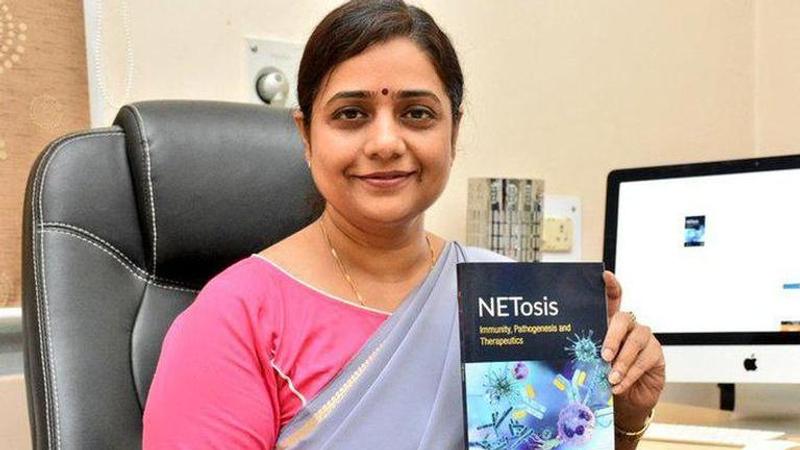Published 16:13 IST, April 2nd 2020
BHU researchers develop improved low-cost testing method for COVID-19
The BHU researchers came up with the new COVID-19 test days after the government called on scientists and startups to help find solutions to fight the pandemic.

As the demand for COVID-19 testing kit has surged across the world, women researchers at the Banaras Hindu University (BHU) have reportedly developed a new testing method that would give the results with hours. Dr Geeta Rai, an associate professor at the Molecular and Human Genetics Department of BHU, led the group of researchers comprising Doli Das, Khushbu Priya to develop the novel method.
The team has already patented the method which is claimed to be low cost and provides 100 per cent accuracy in COVID-19 testing. According to media reports, the researchers have approached the Indian Council for Medical Research (ICMR) and the Central Drugs Standard Control Organization (CDSCO) to gather support to take it to the masses.
The women researchers came up with the new COVID-19 test days after the government called on scientists and startups to help find solutions to fight the pandemic. The detection method is said to be based on RT PCR (Reverse Transcriptase Polymerase Chain Reaction) that guarantees low cost and accuracy.
Molecular point-of-care test
Recently, a US-based laboratory received emergency use authorization (EUA) from the Food and Drug Administration (FDA) for molecular point-of-care test to detect COVID-19. After the approval, Abbott laboratories has launched its molecular point-of-care test that delivers positive COVID-19 results in as little as 5 minutes and negative results in 13 minutes.
For the test, an upper respiratory tract swab collects a mucus sample for testing and the sample is mixed with reagents which break open the virus and release its genetic material, the viral RNA. The reagents then recognise a unique section of the coronavirus genome while ignoring other viruses even if they are similar strains. The virus genome is replicated from a few target molecules up to a billion, making the virus more detectable and then the molecular test provides results to the healthcare provider.
(With agency inputs) (Image: Dr Geeta Rai, Credit: Twitter / @VCofficeBHU)
Updated 16:13 IST, April 2nd 2020




